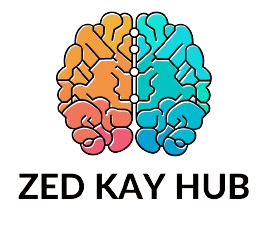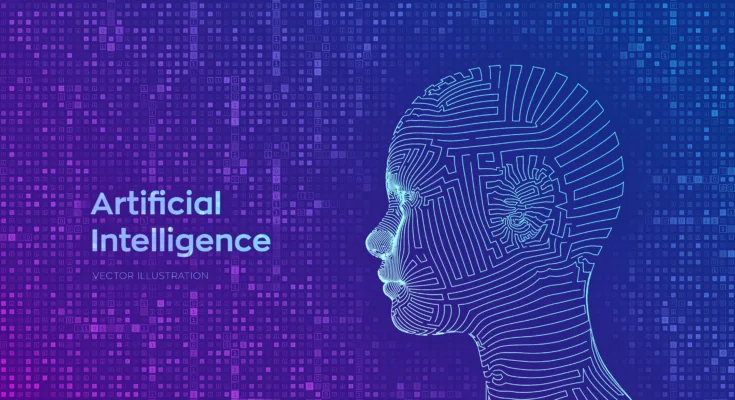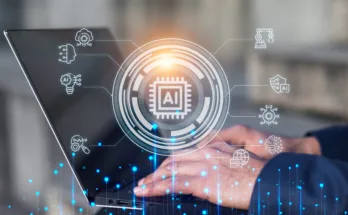Introduction
Artificial Intelligence (AI) has gone from being a sci-fi concept to an integral part of our lives that have changed how we live and work. This article examines the core factors that are driving the growing reliance on AI, reflecting its influence on efficiency, productivity, automation, decision-making, personalization, and innovation.
Efficiency and Productivity
One of the fundamental reasons for the wide spread adoption of AI is being that it has unmatched ability to analyze large chunks of data at very high speed and accuracy. AI tools can solve challenging computations, search for hidden patterns and forecast in seconds as compared to a human. Such improved efficiency translates to higher productivity across different areas including manufacturing and health care.
Accelerating Processes in Manufacturing
In manufacturing, AI-powered machines and robots can automate many of the repetitive tasks involved in production, resulting in greater efficiency and lower operational costs. These systems are great at tasks that need precision and repetition, increasing the overall performance of the manufacturing processes.
Healthcare Advancements through Data Processing
In health care, AI programs are able to process and analyze large volumes of data thus providing quicker and more precise diagnostics. Besides improving the treatment process, it also improves the quality of healthcare systems. From diagnosis of outbreaks to forecasting patient’s outcome, AI proves to be one of the essential tools in medical field.

Automation
AI is one of the main players in the process of automated routine tasks, freeing human from boring jobs and enabling them to concentrate on more intricate and creative work. These transformational effects are obvious throughout different industries.
Self-Driving Cars
Autonomous driving cars is an illustration of AI-driven automation. These vehicles rely to AI algorithms to process the in-time data, go through the traffic, and make immediate decisions. The outcome is not only a comfort for users but also a drop in incidents caused by human mistakes.
Customer Service Revolution
Artificial intelligence-powered chats and virtual assistants have revolutionized customer care with their instant replies and resolutions This elevates the level of customer satisfaction as well and gives the human agents room to focus on more sensitive matters that cannot be handled with just complex algorithms.
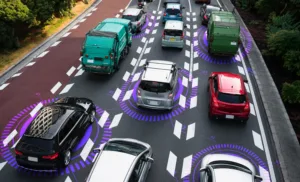
Decision Making
One of the very convincing reasons for the integration of AI into multiple industries is the capability of it to analyze and identify patterns which human observers might miss while examining huge datasets. This informational edge allows an effective decision-making base across various sectors.
Financial Insights and Predictions
Artificial Intelligence (AI) algorithms in the financial sector could sift through huge sets of market data to recognize trends and forecast any potential market swings. This role helps financial analysts and investors assessing risks in a smarter manner, minimizing risk and maximizing profits.
Healthcare Diagnostics and Treatment Planning
In health sector, AI get involved in the diagnostic activities by looking at the patient data and detecting the patient who shows the subtle signs of different conditions. This move not only expedites the process of diagnosis but also aids in tailoring individualized treatment plans according to respective patient profiles contributed by healthcare professionals.
Personalization
AI is a central component of ensuring the delivery of a wide spectrum of highly tailored experiences to the unique needs and tastes of every person. Such an individualization is now driving the transformation of companies like e-commerce and education
E-Commerce Recommendations
In e-commerce, AI algorithms can detect and then analyze user behavior, purchase history, and preferences and suggest personalized product recommendations. Besides that, this can even be said to improve the customer satisfaction and the possibility of success for each transaction.
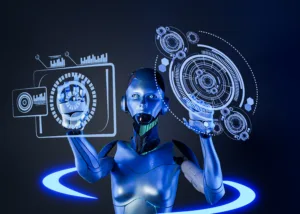
Personalized Learning Journeys
In education, AI is transforming the way students learn by offering the lessons to suit the unique needs of each learner. Adaptive learning platform uses AI to automate the speed and the degree of the lessons, that’s why it improves the learning process for every student.
Healthcare Innovations
In healthcare AI can be used in drug development or genetic research and personalized medicine. AI can do a quick and efficient analysis of complicated medical information and speed up the discovery of new drugs that will possibly lead to some groundbreaking turns.
Energy Optimization in Smart Homes
In smart homes, AI finds use in optimizing energy usage by studying the household patterns and changing the heating, cooling, and lighting systems with the passage of time. It not only provides the energy saving but also is playing the effective role to achieve sustainability.
Artistic Creations
AI now goes beyond analysis in areas like art and music where it is becoming a co-creative ally. Generative models are able to invent new unique artworks and music compositions thus questioning the stereotype that creativity is only a human capability and setting new artistic boundaries.
Conclusion
The role of Artificial Intelligence is largely attributed to its ability to boost efficiency, enable automation, assist in decision-making, provide personalization, and spur innovation. With the rapid progress of technology, the place of AI in our lives is bound to become even bigger, having established its role as a prominent instrument in shaping the future. The acceptance and responsible usage of AI is a key factor in realizing the full potential of AI in making the world more efficient, automated, and personalized.
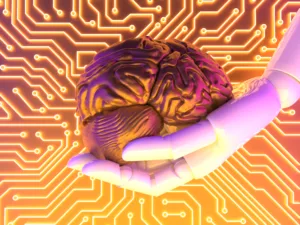
FAQs
Q: What are the advantages that use AI?
A: AI optimizes processes, enables data-driven decision making, and helps in personalizing customer experience, which is the basis of revenue growth.
Q: Can AI perform the duties of humans in a way to replace the human jobs completely?
A: However, AI automates certain functions, while it opens new chances and increases human skills level, which result in job transformations instead of substitutes.
Q: Are there any ethical issues that are likely to arise during AI implementation?
A: Yes, ethical considerations such as data privacy, algorithmic bias and AI governance are the very important topic which should demand attentiveness and rules.
Q: Can AI systems understand and adjust according to the context?
A: In a true sense, AI systems, which are trained for iterative refinement and better performance using feedback, are self-evolving and self-adapting in changing situations.
Q: What about the future application of AI?
A: The variety of fields where AI will be introduced in the future is huge and can be found in such areas as autonomous vehicles, precision medicine, climate modeling, personalized virtual assistants and many others.
